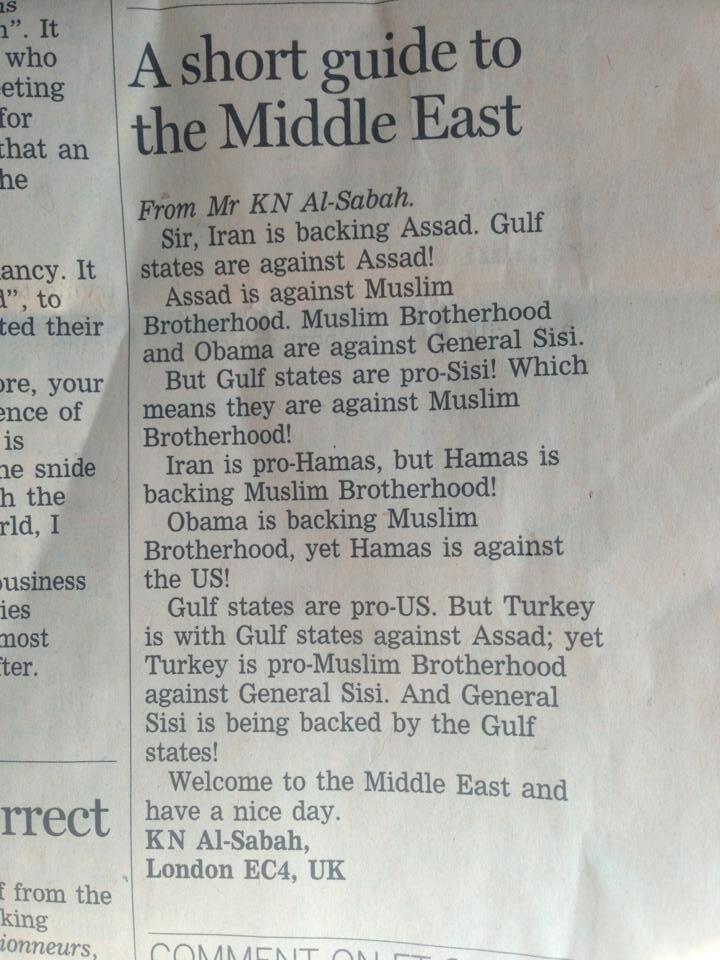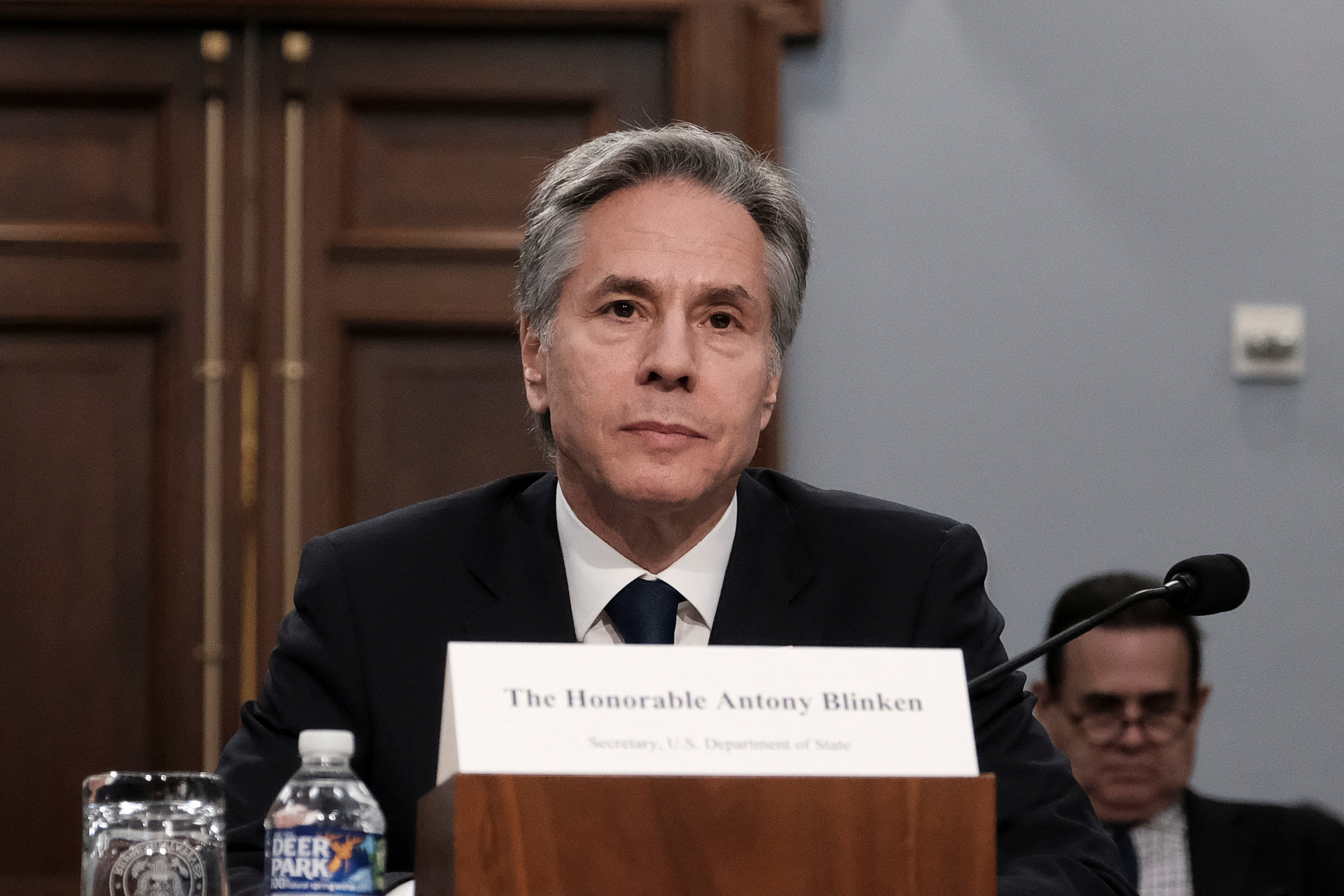On Twitter, I’ve been bombarded by Trumpettes who claim Hillary Clinton did something dastardly and evil in the Middle East when she was Secretary of State, or maybe as U.S. Senator from New York, or maybe as First Lady of Arkansas (tough to remember exactly when, apparently).
These accusers point to some mess in Syria, or Libya, or Saudi Arabia, or East Gotchastan, which they claim was a total mess advocated solely by Clinton who then mustered the Pentagon and State Department to “go to undeclared and illegal war” by going over the head of the President of the United States and Jesus, and personally directing war crimes. In each case, the accusers point out that the Middle East was a calm backwater before Mrs. Clinton, with 100 years of peace broken up only by her perfidy.
It would be amusing, were it not so that many of these people are not Trumpbots posting from Lithuania. Some people believe those stories. They don’t know. They do NOT know. They have so little clue about what really goes on in the world.
Their answer attempts demonstrate they don’t anything about conflict in the Middle East.
Fortunately, a concerned Londoner provided a thorough primer on who is who in the Middle East, who are our friends and enemies, in only six short paragraphs.
Seven paragraphs, if one counts the cheery close.

Letter to the editor of the Financial Times of London, explaining who is who and who is whose enemy, in the Middle East. August 22, 2013, captured by Randy Prine
A woman named Randy Prine (@RandyPrine) Tweeted this photo, and said:
THIS is why we Voted for an analytical and not ‘shoot from the hip’ McCain or ‘How can I make money’ Romney.
Most of the ObamaH8ers I run into can be stopped on almost all Middle East issues simply by asking them whether the group they rant at, at that moment, is Sunni or Shiite. For some odd reason, they never know.
Text of the letter [which may be behind a paywall, though you might be able to get free with registration] (links added here, for your convenience):
From Mr. K N Al-Sabah.
Sir,
Iran is backing Assad. Gulf states are against Assad!
Assad is against Muslim Brotherhood. Muslim Brotherhood and Obama are against General Sisi.
But Gulf states are pro-Sisi! Which means they are against Muslim Brotherhood!
Iran is pro-Hamas, but Hamas is backing Muslim Brotherhood!
Obama is backing Muslim Brotherhood, yet Hamas is against the US!
Gulf states are pro-US. But Turkey is with Gulf states against Assad; yet Turkey is pro-Muslim Brotherhood against General Sisi. And General Sisi is being backed by the Gulf states!
Welcome to the Middle East and have a nice day.
K N Al-Sabah
London EC4, UK
That clears up a lot, doesn’t it?
Would another perspective help?
A fellow named Richard Alan Jones posted a similar piece on Facebook. In response to an earlier post, qhite a few people pointed ultimately to Jones’s work.


Politics, and especially relations between nations, in the Middle East are messy, on a good day. Hillary Clinton didn’t start any war in the Middle East, but instead worked to keep the U.S. out of war, holding to that grand old piece of advice that one of the classic blunders a nation may make is getting involved in a land war in Asia, or Asia Minor or Near Asia in this case.
Hillary Clinton tried to fix it. Anyone who tells you otherwise is scheming, and not to be trusted.
Update, June 7, 2017:
Read the rest of this entry »
Spread the word; friends don't allow friends to repeat history.




 Posted by Ed Darrell
Posted by Ed Darrell 


























